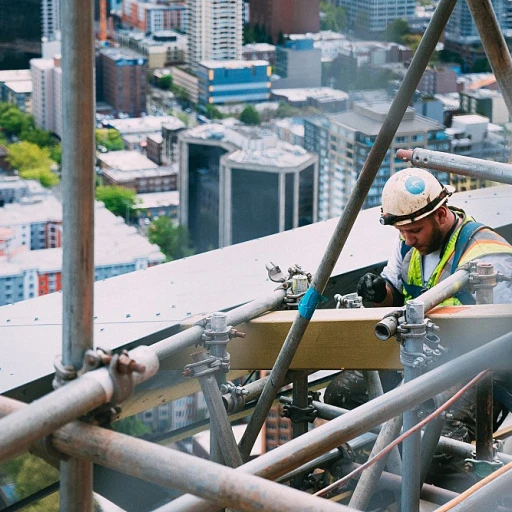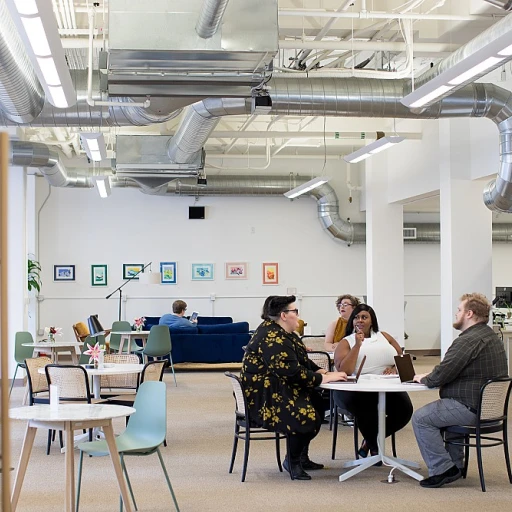
Understanding the Importance of Teamwork in Leadership
Cultivating a Collaborative Atmosphere
In today's evolving workplace, understanding the importance of teamwork is fundamental for effective leadership. Team performance isn't just about completing tasks; it's about fostering a work environment where collaboration thrives, communication is open, and employees feel empowered. Leaders who can build teams where members consistently strive towards common goals are more likely to achieve sustainable success. Successful teamwork hinges on each member's ability to contribute their unique skills toward the group's objectives, enhancing the quality work delivered collectively. Effective leadership involves recognizing and harnessing these diverse skills while facilitating a dynamic where decision making is both inclusive and efficient. This can yield a culture of continuous improvement, where employees feel motivated to engage in problem solving and proactively seek growth opportunities. However, facilitating such an environment is not without challenges. Crafting constructive feedback is essential—not only to guide individual employee performance but to ensure that the group functions harmoniously. Performance reviews are a crucial tool in this regard, allowing leaders to acknowledge team successes and address areas improvement. Positive phrases during performance feedback sessions can reinforce high-quality work and set the stage for future achievements. Consistently integrating effective ‘review examples’ into the feedback process can help leaders strike the right balance between recognizing individual contributions and supporting collective progress. In pursuit of effective leadership skills, it's beneficial to explore avenues like enhancing leadership skills through effective supervision training, which can offer valuable insights into nurturing successful team dynamics.Crafting Constructive Feedback
Providing Feedback That Drives Team Success
In leadership development, crafting feedback is indispensable for fostering a positive work environment and advancing team and employee performance. Offering constructive feedback is an art that blends empathy, communication skills, and a clear understanding of the team goals. Providing quality work evaluations involves identifying strengths and areas improvement in a manner that motivates. When performance reviews emphasize growth rather than simply addressing performance gaps, they inspire employees to reach their fullest potential. Here are some essential strategies you can employ while crafting feedback:- Be Specific: Discuss clear, measurable aspects of performance. This gives employees a clear path towards improvement and acknowledges their specific contributions towards team success.
- Balance Positives and Areas for Growth: While it's important to point out where improvement is needed, consistently incorporate positive review phrases to reinforce what team members are doing right. This approach reinforces constructive behavior and decisions.
- Use Objective Examples: Ground your feedback on specific examples. For instance, "Your time management on the recent project helped the team to meet our deadline successfully," is more impactful than generalized praise.
- Encourage Open Communication: Cultivate an open forum for employees to discuss their performance reviews. This ensures everyone is aligned with the goals and gives team members the chance to engage in problem solving discussions.
- Link Feedback to Development Opportunities: Highlight that feedback is a journey towards improvement. Encourage team members to see reviews as a tool to improve their skills and embrace continuous personal and team development.
Key Phrases for Positive Teamwork Evaluation
Essential Phrases for Empowering Team Performance
Offering positive, detailed feedback in performance reviews can be incredibly beneficial to team engagement and growth. Such feedback should not only highlight areas of strength but also reinforce constructive communication among team members. Here are some key phrases to embrace during employee assessments:- "You consistently demonstrate strong teamwork skills, contributing to a more cohesive work environment."
- "Your ability to communicate effectively has greatly enhanced our team's success and facilitated the achievement of our goals."
- "I appreciate your capacity for problem-solving and the way you navigate challenges with innovative solutions."
- "Your time management skills and dedication to delivering quality work are exemplary and set a standard for the team."
- "Thank you for your continuous support and ensuring tasks are completed efficiently, aiding in our team's overall performance."
Addressing Areas for Improvement
Utilizing Constructive Language for Areas of Development
Performance reviews are an integral part of enhancing team performance. While it's essential to recognize positive contributions, addressing areas for improvement with constructive feedback is equally crucial. When team members understand where they can enhance their skills, their growth potential increases significantly, leading to a better performance for the entire team. To offer constructive feedback that encourages improvement, use specific phrases and examples that focus on solutions rather than just problems. This approach not only highlights the need for improvement but also sets a tone of support and encouragement.- Specificity Matters: Rather than stating "tasks need improvement," illustrate with tangible examples. For instance, "When working on project deadlines, ensuring tasks are completed three days before the due date could improve our time management and quality work."
- Focus on Skills: Address communication skills and decision-making abilities with empathy. For example, "Improving communication skills will enhance team collaboration and make discussions more productive."
- Encouragement for Growth: Encourage a culture of continuous improvement by suggesting follow-up actions. Use phrases like, "Exploring additional training in problem solving could support both your professional growth and our team success."
- Balancing Feedback: When touching on areas improvement, balance the feedback with recognition of strengths. "Your ability to deliver quality work consistently is commendable, and focusing on refining your project management could further enhance your contributions."
Balancing Individual and Team Contributions
Integrating Individual Excellence and Collective Success
In the realm of performance evaluations, it is essential to understand how both individual and team achievements contribute to overall success. Recognizing each employee's specific role in the team's objectives not only fosters a more cohesive work environment, but also enhances the quality of work produced.- Celebrating Individual Contributions: While teamwork is a crucial aspect, acknowledging standout performances in tasks or roles can significantly motivate team members. Using positive phrases such as "consistently exceeds expectations in decision making" or "demonstrates exemplary problem-solving skills" encourages further growth.
- Highlighting Team Achievements: Performance reviews should balance personal achievements with team success. Applauding collective efforts with comments like "the team has shown remarkable improvement in achieving set goals" can reinforce the importance of collaboration and shared objectives.
- Effective Feedback for Balance: Thoughtful feedback can help employees see the symbiotic relationship between their own skills and the team's success. Constructive feedback might include "improved communication skills will enhance team dynamics" or "focusing on time management could benefit our project timelines."
Encouraging Continuous Team Development
Fostering a Culture of Continuous Improvement
Encouraging continuous team development is essential for maintaining a high level of performance and ensuring that team members consistently grow in their roles. Leaders should focus on creating an environment where employees feel motivated to improve their skills and contribute to the team's success. This involves providing regular feedback and setting clear goals that align with both individual and team objectives.
Implementing Regular Feedback Sessions
Regular feedback sessions are crucial for fostering continuous development. These sessions should be constructive and focus on both positive phrases and areas for improvement. By consistently providing feedback, leaders can help team members understand their strengths and identify opportunities for growth. This approach not only enhances individual performance but also contributes to overall team success.
Encouraging Skill Development and Learning
Leaders should encourage team members to pursue skill development opportunities. This can include workshops, online courses, or mentorship programs. By investing in employee growth, leaders demonstrate their commitment to the team's development and create a work environment that values learning and improvement.
Promoting Open Communication
Open communication is vital for continuous team development. Leaders should foster an environment where team members feel comfortable sharing ideas, feedback, and concerns. This openness can lead to improved problem-solving, better decision-making, and a more cohesive team dynamic. Encouraging team members to voice their thoughts can also lead to innovative solutions and enhanced team performance.
Setting Clear and Achievable Goals
Clear and achievable goals are essential for guiding team development. Leaders should work with team members to set individual and team goals that are challenging yet attainable. By aligning these goals with the team's overall objectives, leaders can ensure that everyone is working towards a common purpose. Regularly reviewing and adjusting these goals can help maintain motivation and drive continuous improvement.
Recognizing and Celebrating Achievements
Recognizing and celebrating achievements is an important aspect of encouraging continuous development. Leaders should acknowledge both individual and team accomplishments, using positive phrases to highlight quality work and dedication. Celebrating successes not only boosts morale but also reinforces the behaviors and skills that contribute to team success.













